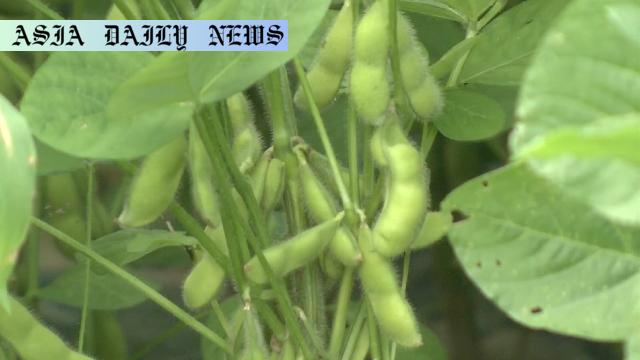Ethanol: Japanese researchers reveal heat-resistant vegetable growth breakthrough involving diluted ethanol application.
Key Point 1: Japanese researchers discovered ethanol aids plants in thriving under extreme heat conditions.
Key Point 2: Experimentation showed a 300% increase in fruit yield and larger leaf growth in ethanol-treated tomatoes.
Key Point 3: Ethanol also boosted heat-protective proteins and sugar levels in plants.
Key Point 4: This new method could combat agriculture problems caused by record heat waves globally.

Understanding the Role of Ethanol in Plant Growth
A groundbreaking discovery by Japanese researchers from the Riken Center for Sustainable Resource Science under the leadership of Dr. Seki Motoaki has unveiled a revolutionary application of ethanol in agriculture. The study focused on tackling one of the most pressing concerns of modern agricultural practices—heat stress on crops. With global temperatures on the rise, the urgency to adapt and innovate methods for improving crop yield in extreme heat conditions is paramount. Through extensive research, the team found that ethanol, when applied to plants, could enhance their ability to grow and thrive, even at temperatures as high as 50 degrees Celsius.
The study involved applying an ethanol solution, diluted to a concentration of 0.1%, to cherry tomato plants through their roots and leaves. Notably, this simple yet innovative method yielded remarkable results. The treated plants showcased an impressive growth rate, with leaves increasing in size and fruit production tripling compared to untreated plants. Furthermore, the application of ethanol exhibited biochemical benefits, such as a rise in heat-protective proteins and sugar content within the fruits and leaves. These findings underscore the potential of ethanol not only to protect but also to optimize plant growth under adverse environmental conditions.
The Practical Implications of Utilizing Ethanol
The implications of this research extend far beyond experimental settings. Dr. Seki emphasized that ethanol, being an affordable and readily available substance, could be a game-changer for farmers globally. Its application, which only involves a simple dilution process, makes it a practical and accessible option for mitigating the negative effects of extreme heat on agriculture. Countries experiencing record summer heat, like Japan, have already observed detrimental impacts on various crops, with leafy vegetables ceasing to grow and tomato plants failing to bear fruit. Ethanol treatment may serve as a solution to these challenges, potentially transforming agriculture in both developed and developing regions.
Furthermore, the broader applications of this innovation could revolutionize food security efforts worldwide. Incorporating ethanol into agricultural practices would not only improve yield but also enhance the quality of produce by boosting nutrient density and resilience against harsh climates. This could provide a sustainable alternative to existing methods, reducing reliance on expensive and resource-intensive technologies that may not be feasible for small-scale farms.
The Road Ahead: Challenges and Opportunities
As promising as these findings are, there remain challenges to address before ethanol can be widely embraced as a solution for heat-tolerant agriculture. Further studies are needed to evaluate the long-term impacts of ethanol use on various crop species and soil ecosystems. Questions about dosage, application frequency, and potential environmental effects need to be thoroughly explored. Additionally, scaling this method for large-scale farming will require collaboration among scientists, policymakers, and farmers to ensure its viability and adoption.
However, the potential opportunities far outweigh the obstacles. This innovation aligns with global efforts to combat climate change by creating resilient agricultural practices that can withstand erratic weather patterns. With continued research and development, ethanol could become an integral tool in achieving sustainable food production, especially in regions heavily affected by climate-induced agricultural challenges.
Commentary
Ethanol as a Solution to Agricultural Challenges
The recent discoveries by Japanese researchers on the use of ethanol in enhancing plant growth under extreme heat conditions signal a monumental shift in agricultural practices. With climate change becoming an undeniable reality, global temperatures have soared, creating unprecedented challenges for farmers and food supply systems. Ethanol, a simple and accessible substance, could serve as a powerful tool in mitigating these difficulties, offering a beacon of hope for future farming practices.
The Significance of Heat-Resistant Crops
Heat-resistant crop production is no longer merely a topic of academic interest—it is a necessity for the sustenance of global food security. The fact that plants treated with ethanol showed a remarkable increase in growth and productivity highlights the immense potential of this method. Not only does it address the problem of reduced yields caused by excessive heat, but it also augments the quality of crops by increasing sugar content and protective proteins. These benefits could greatly aid countries grappling with food shortages due to climate-related disruptions.
A Step Toward Sustainable Farming
This development is particularly exciting because of its simplicity and scalability. Unlike other complex agricultural innovations, the application of ethanol requires minimal expertise and resources, making it accessible even to small-scale farmers in low-income regions. However, the journey is far from complete. More trials across diverse plant species and environmental conditions are essential to validate the consistency and safety of this method. Policymakers and researchers must work hand-in-hand to pave the way for its widespread adoption. With careful implementation, ethanol has the potential to redefine agricultural norms and foster sustainable farming practices globally.


